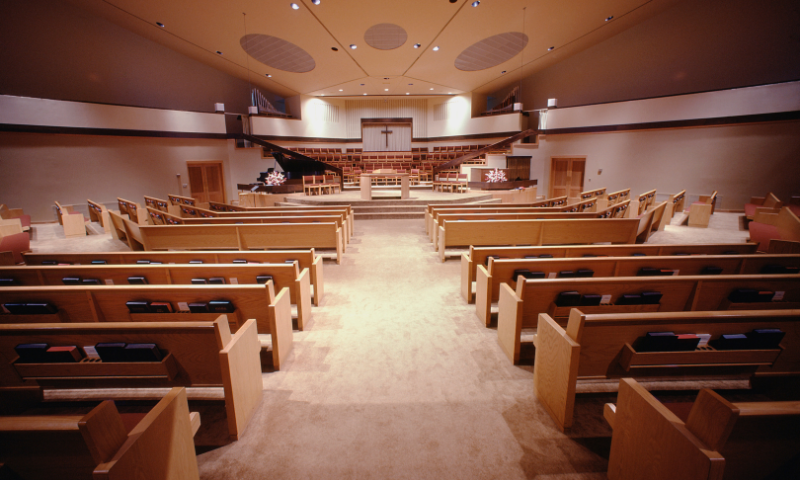In today’s unpredictable world, tenant churches face increasing risks that could compromise their operations, assets, and most importantly, the safety of their congregation. Without proper insurance coverage and emergency planning, a single unforeseen event could bring church activities to a sudden halt. For tenant churches, which typically do not own their facilities, the need for proactive protection is even more critical.
Why Insurance for Tenant Churches Is a Non-Negotiable
Tenant churches often lease spaces in schools, office buildings, or community centers. This unique setup creates a layer of complexity when it comes to insurance. Many mistakenly assume that the landlord’s insurance will cover church-related damages or liabilities—it won’t.
Tenant churches must secure their own comprehensive insurance policy to safeguard their people, property, and mission.
Key coverage areas include:
- General Liability Insurance
Protects against third-party bodily injury, property damage, and legal claims. - Property Insurance
Covers church-owned assets like sound equipment, musical instruments, chairs, and signage. - Professional Liability Insurance
Shields leaders and volunteers from claims of negligence, counseling issues, or mismanagement. - Abuse and Molestation Coverage
A sensitive yet vital protection that no church should overlook. - Business Interruption Insurance
Ensures your church can still meet expenses even when services are temporarily paused.
Common Threats That Demand Immediate Coverage
Without warning, your church could be affected by any of the following:
- Fire or Electrical Damage in a rented facility
- Slip and Fall Accidents involving congregation members or visitors
- Natural Disasters like storms or floods
- Vandalism or Theft of sound systems, donation boxes, or musical instruments
- False Allegations against church staff or volunteers
- Loss of Use if your rented space becomes uninhabitable
Each of these scenarios presents a real and urgent threat to a tenant church’s sustainability. Having proper insurance is not only a smart business decision—it’s a moral responsibility.
Emergency Planning: More Than a Safety Drill
While insurance is the foundation, emergency preparedness is the frame that holds everything together. Churches must plan for both minor incidents and major disasters with precision.
1. Create a Comprehensive Disaster Recovery Plan
A Disaster Recovery Plan (DRP) should include:
- A clear communication protocol during emergencies
- Contact lists for leadership, local emergency services, and the landlord
- Evacuation routes and signage mapped out for your specific facility
- Backup locations for services in the event your venue is compromised
- Protocols for shutting down equipment, securing assets, and protecting sensitive data
2. Train Your Staff and Volunteers
An emergency plan is only effective if everyone knows it. Schedule regular emergency response training sessions, including fire drills, active shooter simulations, and medical emergency response practice. Equip ushers and greeters with first aid and CPR training, and assign roles like evacuation leaders or communication coordinators.
3. Conduct Regular Risk Assessments
Periodically assess your rented space for:
- Fire hazards (e.g., blocked exits, overloaded sockets)
- Trip and fall dangers (loose rugs, wet floors)
- Unsecured equipment
- Inadequate lighting or signage
- Vulnerable areas prone to vandalism or break-ins
Work closely with your landlord to address issues quickly and maintain compliance with safety codes.
4. Back Up Your Data Off-Site
Your church may store sensitive data such as donor records, financial information, counseling notes, and member contact lists. Always store encrypted digital backups off-site or in the cloud. In the event of a fire or burglary, you’ll still be able to function with minimal disruption.
How to Choose the Right Insurance for Your Tenant Church
Not all policies are created equal. Tenant churches should look for specialized insurance providers who understand the nuances of religious organizations operating in leased facilities.
When evaluating providers, ask the following:
- Do they offer customized policies tailored to tenant churches?
- Are event-related coverages included (e.g., church picnics, fundraisers)?
- Is there coverage for borrowed or rented equipment?
- Can they provide fast claims assistance in times of disaster?
Working with an agent who specializes in church insurance can ensure that you’re neither underinsured nor overpaying.
Immediate Actions Every Tenant Church Should Take Today
- Review your current insurance policies. Ensure they match your actual exposure.
- Create or update your emergency preparedness plan.
- Schedule a meeting with an insurance provider who specializes in church policies.
- Train volunteers and leadership on emergency roles and responsibilities.
- Do not assume your landlord’s coverage protects your ministry—it doesn’t.
Conclusion: Be Proactive, Not Reactive
Disasters won’t send advance notice. Fires, lawsuits, storms, and unexpected tragedies can happen at any moment. Tenant churches must move beyond faith alone and take actionable steps to protect their people, purpose, and property. With the right insurance coverage and a strong emergency plan, your church can recover faster, minimize financial loss, and continue serving your community with strength and resilience.
Protect your ministry before disaster strikes. Contact Nolan Jackson Church Insurance today for tailored coverage and expert guidance built for tenant churches. Your peace of mind starts here.

